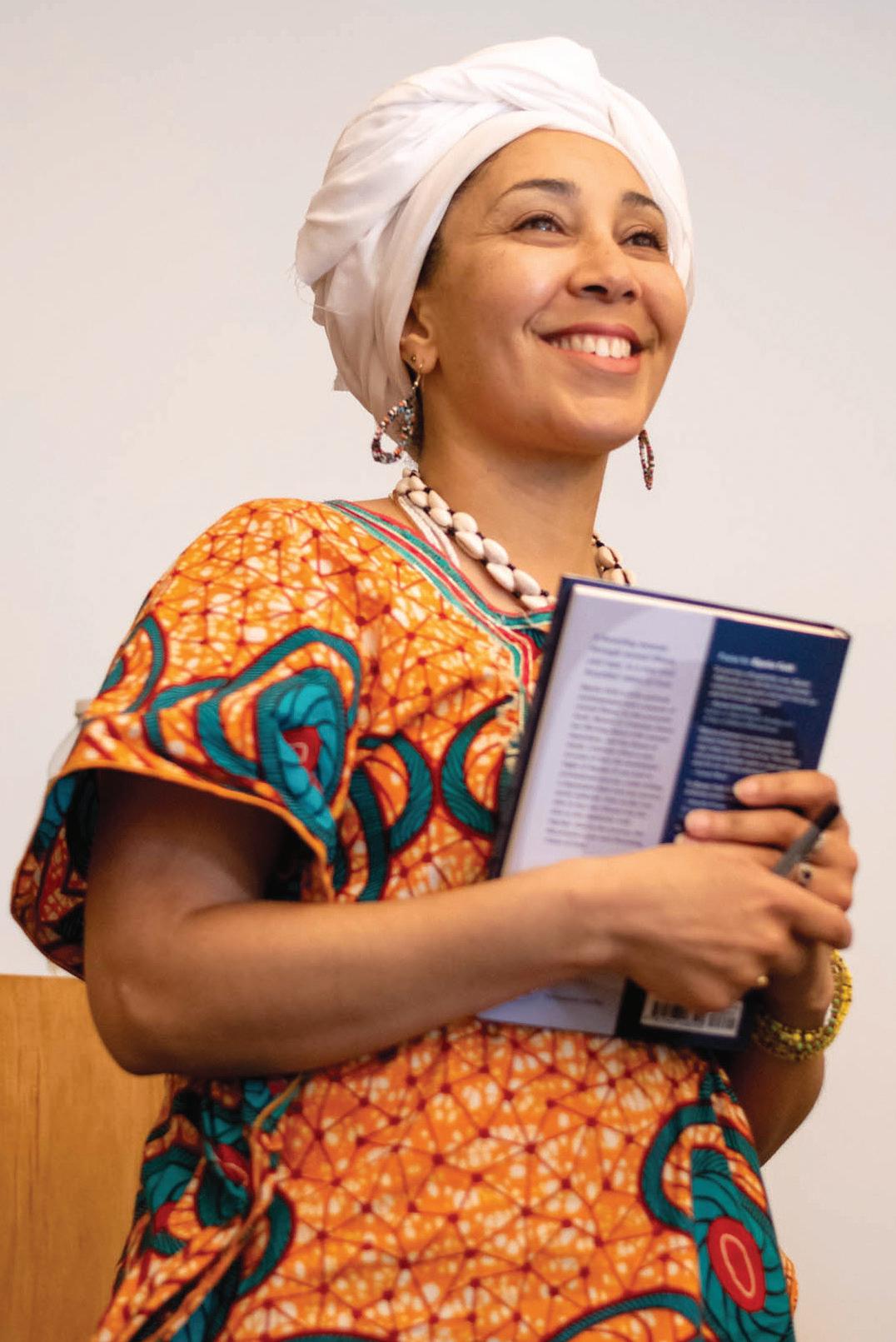
1 minute read
Choosing to live
Monica
BY ELIZABETH DOWELL
Advertisement
As a young adult, Monica Coleman drew an imaginary line in the sand. To cope with her mental illness, she viewed checking into a mental hospital as the threshold she would never cross. But, in the midst of a mental health crisis, Coleman finally took action. It was the best decision she ever made.
“I felt like the only thing between me and not being alive was this line, and I chose life,” Coleman said.
In one of her most recent books, “Bipolar Faith,” Coelman talks about her struggles with depression and becoming mentally and spiritually balanced.
Coelman began her speech by asking students, “Who likes to win and who likes to lose?”
shares her struggle with mental illness in Speaker Series
The audience responded with enthusiasm for winning, but Coleman’s question had a deeper meaning.
She explained how “winning is good” because society has taught that failure is looked down upon.
“I didn’t want to lose, and I didn’t know how to lose,” Coleman said. She was afraid of losing her mind.
When she was feeling suicidal, Coleman’s friend Connie suggested she seek help.
“I trusted Connie, so I went and got help,” Coleman said.
Coleman received professional counseling and later went back to school.
Now, she’s a professor of African American studies at the University of Delaware and goes on college tours to promote mental health awareness.
She ended her speech by advising students to “show up” to receive counseling even if students “are afraid.”
“Be present, ready for something to find you and to break you open into what may be a great experience in your life,” Coleman said. “Show up, have that person that you trust. Know it’s okay to rest so you can heal and stay in the race.”
Brianna Randall attended the event and felt a connection with Coleman’s experiences with
“mental illness.”
“The event was really eye opening,” Randall said. “If Pierce continues to put on more speaking events like this, more students would feel comfortable and willing to get help.”
Taya Mims, a student who spoke to the audience about her own mental health struggles, expressed how this experience helped her find her voice and inspire her peers to seek help for themselves.
“I thought it was very liberating for everybody and myself,” Mims said. “I got to express my own struggles with education and having a disability. Today was magical and spiritual and I really appreciated that we got to do this event.”
Fernando Oleas, Chair of Modern Language Department, wanted to inform students on how to manage mental health issues as they navigate their way through school and life’s challenges.
That’s when Oleas began trying to get Coleman to present on campus, which he achieved.
“I was pleased to see that










